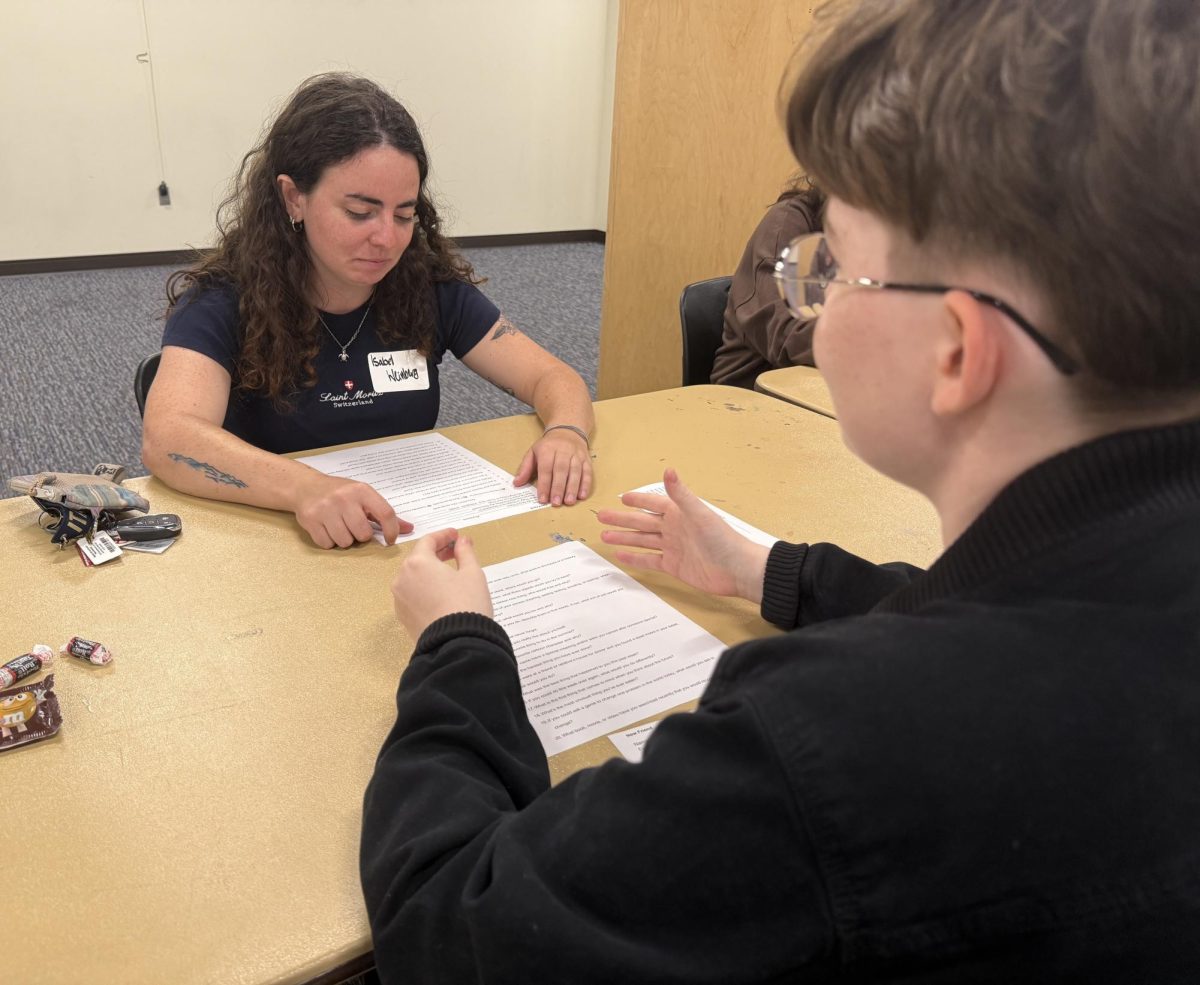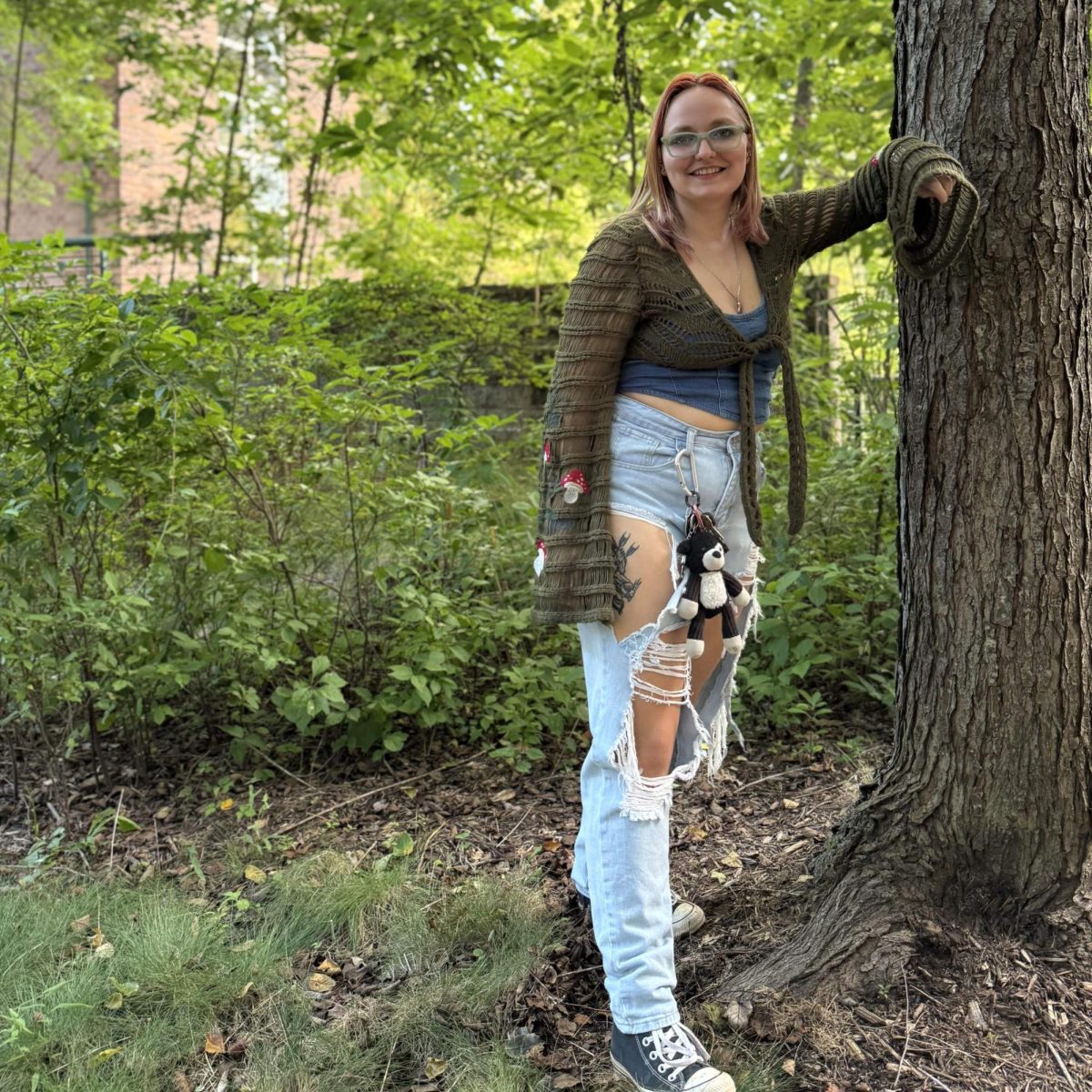Eliza Hill
Arts & Features Editor
[email protected]
Henrietta “Cissy” Dendy fell down the 25-step walkway in front of her Madison Avenue bungalow this year. While the tumble left a score of stitches snaking up her arm, the 71-year-old remains unstifled as she carries on with perseverance and resilience she has always possessed.
“Every time someone says to me that because of my sex or my race that something’s off limits—that’s a red flag in front of the bull. I’m fixing to go around you if I can, over you if I can. If none of that works, I’m coming right through you,” she said.
In recent years, she helped three sisters probate their aunt’s will and turn their house on Madison Avenue into a generational asset after losing property in Stumptown through urban renewal. She calls Asheville’s urban renewal project “Negro Removal” because the process displaced many Black families and businesses, stripping many communities of generational wealth and opportunity.
“I said ‘You leave a will, I’ll help your relatives probate,’ because they’re the ones who lost everything over there in Stumptown. They had land, several little shanty houses, the city essentially made it eminent domain and they took the land. The women were essentially homeless. They all managed to survive and get married and get homes in other areas but they never recovered from having lost that. They now have a little piece of something over here in North Asheville where nobody can afford to buy anything and there is a one percent vacancy rate,” Dendy said.
Her aunts named her Henrietta at birth after her maternal grandmother, although she said she was named after the wrong relative and would rather her namesake be her great grandmother, Margaret Elizabeth Gudger Carter, who was a slave as a child at the Gudger house in Montford. Her mother told her she and Margaret were kindred spirits, unlike Henrietta who loved cooking, housework and motherhood. Margaret was a tomboy who loved horses, shooting, hunting and favored male friends over their female counterparts.
“I could always shoot, but I was never a good shot. And she was a crack shot,” Dendy said. “ But I tend to get along with guys easier because I’m a tomboy. As my mother said, that’s Margaret Elizabeth. She said Henrietta wanted to be a mother. She liked cooking and housework and loves children. And that’s not me—she said I have nothing in common with Henrietta.”
Dendy fiercely promotes civil rights and helped with the integration process in Asheville after years of segregation and injustice. Dendy’s family friend and Trustee Emeritus at UNC Asheville, Alfred Whitesides, admires her advocacy and passion.
“I have always admired that she was a feminist before her time. And she always stuck up for her rights and did it in a way that you would respect her for,” Whitesides said.
Roxanne “Roxie” Wynn, one of the three sisters and mother of Dendy’s nephew, said her efforts benefited her family immensely and considers Dendy’s resources and advocacy invaluable.
“My aunt left the house to the three of us and my sister was the executor. Cissy helped her move through the probate process to make sure we were able to clear it out and get it legally in deed to us properly,” Wynn said. “She’s the kind of person if she’s for you, she doesn’t care who’s against you. But if you rub her the wrong way, she’s not gonna be too quiet about it, she’s gonna let you know what the deal is.”
Cissy Dendy was raised by the nationally ranked golfer, John Brooks Dendy, fondly known as Brooks. She said her father’s celebrity status lended her family certain social advantages as well as pressure to uphold a reputation. Unlike her brothers, she coins herself as a mamma’s girl and didn’t let her father’s status or social presence intimidate or hinder her.
She said her relationship with her father, with whom she shared a birthday week and irrepressible personality, didn’t soften until she entered her thirties.
“If you had a problem with him, you can’t go out there and talk to anybody, you’re going to have to come home and deal with it right here. So I did,” Dendy said. “I was the only child he had that defied him to his face constantly. And it was war constantly until I got in my thirties. And I finally asked him, ‘Are you tired of this?’ And he said yes. After that, we got beat from it.”
Whitesides said Brooks—like Cissy—sported a unique, magnetic personality. He started as a caddy master at Biltmore Forest Country Club and climbed the ranks to be one of the most formidable golfers in the country.
“He was one of the best golfers of his time. He came along too early. He was nationally considered a top Black golfer in America. They had these Black tournaments all over the country and they’d play for the championship. I think for about two or three years in a row, Brooks won,” Whitesides said.
Dendy said those close to her could possibly hold a seat on his bus to the Masters golf tournament in Augusta, Georgia. However, not all qualified — not even UNCA’s Chancellor William Highsmith.
“When I first went to UNCA, I was trying to get out of P.E. — one, because I’d already had it. Two, because I had three years in the military so I really didn’t think I needed fucking P.E. When I appealed, somehow it bounced up to Chancellor Highsmith and I thought ‘How does something this minor get bounced to a chancellor?’” She said. “He asked if I was related to Brooks. I said yes, I would be his only daughter. With the name Dendy, yes definitely.”
Highsmith proposed a trade — he would let her drop P.E. if her father allowed him on his bus to the Masters in Augusta. Cissy agreed, knowing what the answer would be. She didn’t leave the conversation with making sure she could drop the class just for asking.
“I told my dad Chancellor Highsmith wants to get on the bus so I can get out of P.E.,” she said. “And he said ‘I hope you had him say he’d let you out just for asking. You go back and tell him that he ain’t got enough cash or class to get on my bus.’ I knew for a fact he didn’t have enough cash to get on that bus. Seriously, all you are is an old school teacher and you want to get on that bus? Hell no. I already knew that wasn’t going to happen.”
While her brothers looked to her father for approval, she said she admired and loved her mother, Marjorie Dendy, immensely and dubbed her the unsung hero of the family. She worked as a nurse, although she was a talented vocalist and received a scholarship from Juilliard in the 1930s.
“I didn’t care one way or the other what he thought. I cared very, very much about what she thought,” she said. “Hard shit didn’t make her fold up and go away. She might get quiet for a minute, but you see those eyes narrow and you just want to sit back and watch it. ‘Cause it wasn’t going to be loud or wasn’t going to be ugly. She was not that person. But it was definitely going to be effective.”
Dendy decided at a young age she didn’t want children, a husband or to live a conventional life that fit society’s standards. She graduated from Allen High School — a Christian, all-girl school located on College Street where many successful, Black women became educated. Although she attended a Christian school, she never identified with the Christian ideology, and embraced Buddhism instead.
“I ultimately ended up being an atheist and then a humanist. I’m a follower of Maslow and Viktor Frankl. I went to grad school for humanistic psych and needed some way to focus why I think I’m here and Buddhism kind of made sense,” she said.” It works for me in terms of how I want to relate to my fellow humans, the other creatures on the planet and in general. I told my minister as a kid that I don’t even think I have the ability to believe except for Santa Clause. That’s major because all theisms — Muslim, Christian — they require you to suspend knowing. It’s only about belief. I have not ever been able to successfully spend it, unless I was on drugs.”
After spending time at Vanderbilt College, she decided to drop out and move to New York City to start a new life and experience a world that differed from her life in Asheville. She filled a duffel bag with what little she took with her, got on a plane and moved to Greenwich Village where she worked in venues and bars with a fake ID.
She reluctantly returned to Asheville when her parents summoned her home, all the while looking for signs to confirm her notion to stay in New York City.
“I was still cashing checks off of my account at First Union, so they tracked me down, along with my relatives in New Jersey. They said ‘You’re going to come home and we’re going to talk about this,’” she said. “I just had the time of my life and now I have to go face the family. So I take that little airplane ticket and fly home and look for signs from the heavens. I wasn’t Christian, but I was looking for signs. I got on a plane that had trouble and almost crashed.”
Despite the plane losing hydraulics and having an emergency landing in Winston Salem, Dendy made it home to her family where she promptly turned around and marched down to the military recruiting office where the bus station now stands.
“I never even took the tags off my bag. It was one of these ‘Wait until your father gets home’ situations. And I thought ‘That never goes well.’” She said. “I walked down and I said ‘If you can get me out of this town in 48 hours, you can have me for three years.’ And they said my ass would be on a bus to Charlotte by tomorrow.”
While others questioned Dendy’s choice to join the military, considering her involvement in the anti-war movement, she viewed her choice as a sound decision to avert the crisis of facing her family and living the life they wanted her to live.
“The truth is, I was already never anti-military and certainly not anti-war — I’m an Aries bitch from the beginning — but I was opposed to Vietnam. Seriously opposed to Vietnam, and that was the war,” Dendy said. “But I seriously needed to get the fuck out of there before I had to talk to the parents. ‘Cause I had visions of driving around in the lamest car, wearing sensible shoes, wearing my hair in a bun and going to community college and becoming a school teacher, which is, I’m sure, what they wanted.”
She arrived on Fort Dix in New Jersey and became the first female in the 91-G-20 occupancy. Not only was she quickly ranking up in a position priorly filled by men, but she led the first active duty military group to protest a war in formal fashion. More than 100,000 people showed up to gather on a highway median to protest the Vietnam War and march through one of the largest military bases in the country. Media took notice and the head of Fort Dix was soon to raise a brow and call her mother.
“When they called her, they had me in the room and he had asked me if there was somebody I would listen to. Like all teenage Black girls, I put my hands on my head, rolled my eyes, popped my head up and just said, ‘My momma,’” she said. “The general in charge of the second or third largest military base in the United States had literally called my mother. So Marge said ‘You’re the general and sergeant of how many thousands of people? And you can’t handle one little Black teenage girl. What is wrong with you?’ So she said ‘I’ll get her to stand down to give you a breath, but she doesn’t get any penalty for this,’ and he said ‘Yes, I just need a breath.’”
Because Dendy knew how to speak German and wanted to travel overseas, her mother suggested they send her to Stuttgart, Germany, where she was stationed in the 5th General Hospital and won an award for excellence in her department and a trip to Berlin to tour behind the wall as the prize.
“I’m the one who won it and they were expecting an officer to win it. They weren’t expecting a woman to win it. Not only did I win, but the second year my boyfriend won because I pushed him,” she said. “I didn’t let that man have rest until I knew he was as excellent as me.”
Whitesides said while he built a strong rapport with Cissy’s father, he had completely forgotten about her and was surprised to see her at the First Union Bank where he worked.
“I’d forgotten her! By the time I saw her, I knew who she was. All I said to her was ‘Where have you been?’” Whitesides said.
Little did he know he had a lifetime of stories to catch up on, although Cissy Dendy was only 22 years old when she left the military to pursue a degree in psychology at UNCA.
Dendy said she gets busier as she gets older. She works part-time at McDonalds on Merrimon Avenue and continues to supply historical databases like The North Carolina Room at Pack Library with rich, historical information about the area and about her family.
Whitesides said the adversity Dendy overcame during a time where people may not have been keen to a strong-willed woman, made her even stronger. She may have mellowed with age, but she possesses the same tenacity as her younger self, with a soft side for those she loves.
“I think her badass persona comes from being a woman at the time she came along—she had to demand respect and I think that was part of it,” he said. “But, she talks and comes across as a badass but she’s not really that way. She’s got a big heart if you get to know her and she’ll do anything in the world to help you.”
Categories:
Local fixture breaks molds and preserves Asheville history
September 21, 2020
1
More to Discover


![Brooke Pedersen [second from the right] and Luis Reyes [right] hold banners during the Wrap The Woods event.](https://thebluebanner.net/wp-content/uploads/2025/09/ELIZABETH_PRITCHITT_IMG_3470-1200x804.jpg)





















